
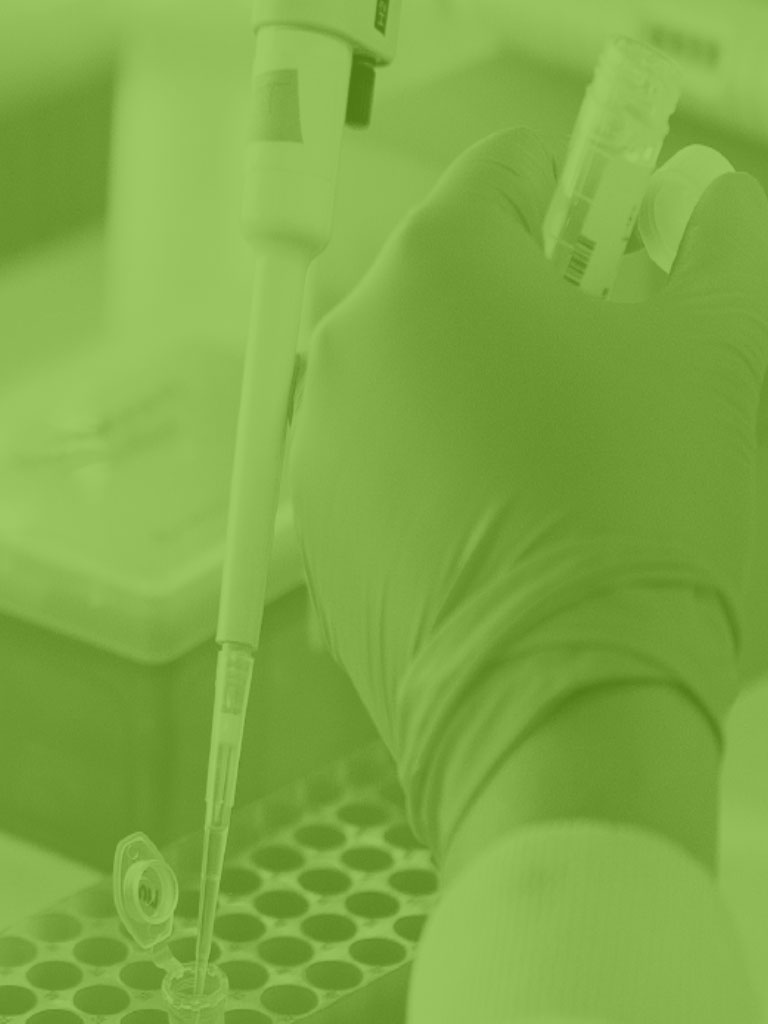
2022
More resources
for better research


2022
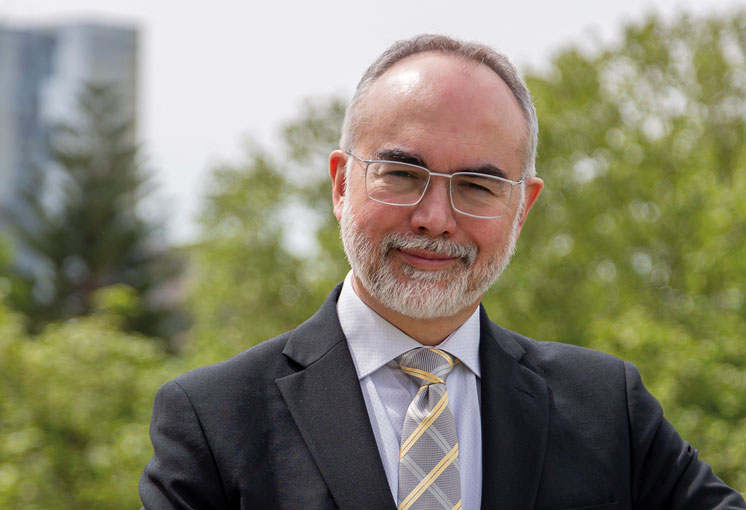
We associate APOE gene variants with the risk of developing Alzheimer's. Carriers of the APOE ε2 variant could have greater brain reserve and more protection against Alzheimer's. On the other hand, carriers of the APOE ε4 gene, linked to a higher risk of developing the disease, have an early accumulation of the amyloid protein in the hippocampus area.+ info+ info

A study by the Barcelonaβeta Brain Research Center, the Hospital del Mar Medical Research Institute and the University of Gothenburg, with the impetus of the ”la Caixa” Foundation, determines two optimal blood biomarkers to show the first signs of the amyloid build-up in the brain.+ info

An international team led by researchers from Barcelonaβeta Brain Research Center demonstrate the association between the quality of sleep and the pathology related to the Alzheimer's disease in people without cognitive impairment.+ info
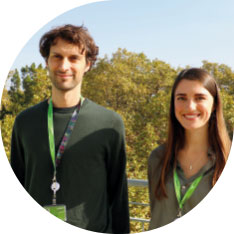
Two studies carried out at the Barcelonaβeta Brain Research Center, with the impetus of the ”la Caixa” Foundation, indicate that there are genetic variants that are associated with a longer telomere length and that may be related to a lower risk of developing Alzheimer's.+ info
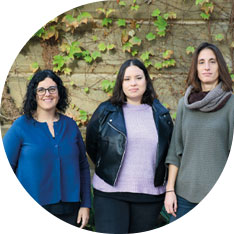
We associate APOE gene variants with the risk of developing Alzheimer's. Carriers of the APOE ε2 variant could have greater brain reserve and more protection against Alzheimer's. On the other hand, carriers of the APOE ε4 gene, linked to a higher risk of developing the disease, have an early accumulation of the amyloid protein in the hippocampus area.+ info+ info

We open new avenues for the leading analysis of biomarkers and the pathophysiological mechanisms that are altered in the early stages of the disease. + info
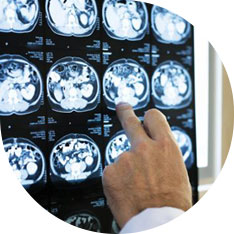
A study by the Barcelonaβeta Brain Research Center, the Hospital del Mar Medical Research Institute and the University of Gothenburg, with the impetus of the ”la Caixa” Foundation, determines two optimal blood biomarkers to show the first signs of the amyloid build-up in the brain.+ info

We relate Alzheimer's biomarkers, such as beta amyloid or neuroinflammation, to an increase in symptoms of anxiety and depression during confinement due to Covid-19. This study analyses the negative impact of confinement on cognitively healthy people who are part of the Alfa Study, promoted by the ”la Caixa” Foundation.+ info
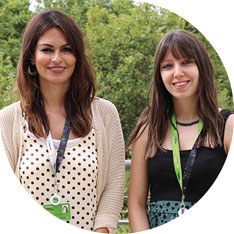
An international team led by researchers from Barcelonaβeta Brain Research Center demonstrate the association between the quality of sleep and the pathology related to the Alzheimer's disease in people without cognitive impairment.+ info

We validate nine possible biomarkers, variants of the tau protein, in blood that can be very useful in the diagnosis of Alzheimer's disease in daily clinical practice. This study has been carried out in collaboration with the Hospital del Mar Medical Research Institute (IMIM-Hospital del Mar). + info
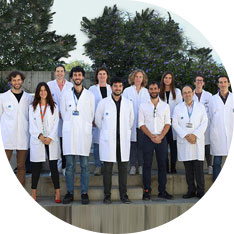
Two studies carried out at the Barcelonaβeta Brain Research Center, with the impetus of the ”la Caixa” Foundation, indicate that there are genetic variants that are associated with a longer telomere length and that may be related to a lower risk of developing Alzheimer's.+ info

Budget
18.385.668€
Pasqual Maragall Foundation
10.771.589€
BBRC Research Center
7.614.079€

59%Pasqual Maragall Foundation
41%BBRC Research Center
| Total income | 18.385.668€ |
| Current income | 18.176.246€ |
| Patrons, partners and donors (57%) | 10.286.154€ |
| Research projects (40%) | 7.350.681 € |
| Income from clinical trials (2%) | 397.591€ |
| Public advocacy and institutional relations, social area and outreach (1%) |
141.820€ |
| Capital grant income* | 142.601€ |
| Financial income* | 66.821€ |
| *Not included in the chart |
| Total expenses | 17.583.786€ |
| Current expenses | 17.533.946€ |
| Research programs (62%) | 10.848.285€ |
| Communication and awareness (8%) | 1.453.163€ |
| Public advocacy and institutional relations, social area and outreach (4%) | 754.997€ |
| Investment in the network of partners and donors (22%) | 3.760.673€ |
| Administration (4%) | 716.828€ |
| Financial expenses * | 49.840€ |
| *Not included in the chart |

Partners

Solidarity
initiatives

Solidarity shops

Telephone conversations

Companies on the Patronage Council
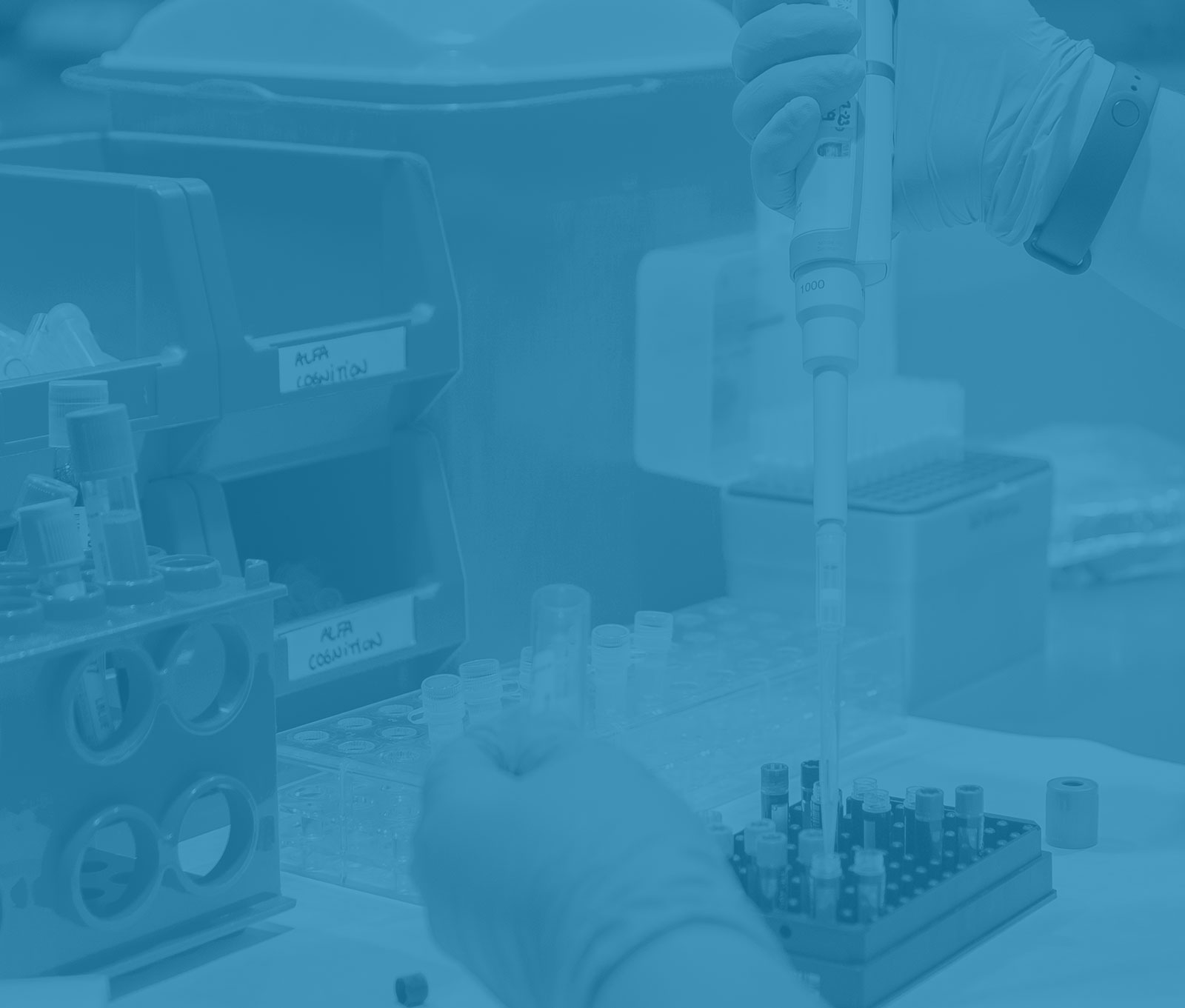

The Barcelonaßeta Brain Research Center is dedicated to research on the prevention of Alzheimer's and healthy aging from a clinical, cognitive, genetic, biological markers and neuroimaging perspective. The programme is structured into four closely collaborating multidisciplinary groups: the Neuroimaging Research Group, the Clinical and Risk Factors for Neurodegenerative Diseases Research Group, the Fluid Biomarkers and Translational Neurology Research Group, and the Genomics Research Group.
Articles published
in prestigious
scientific journals
Published in
Q1 magazines
Published in
D1 magazine
 Scholarships and competitive grants
Scholarships and competitive grantsScholarships and grants
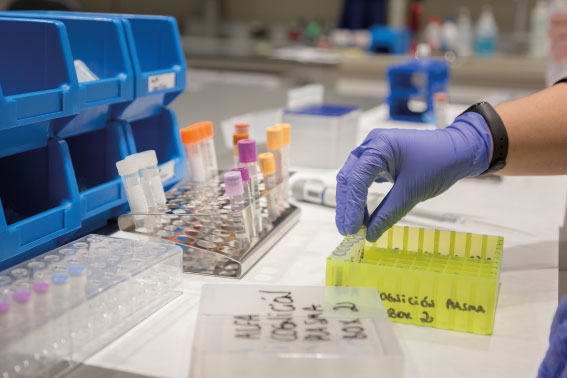
The BBRC obtained a total of 10 grants in 2022 to carry out scientific projects.
Obtaining these funds endorses the rigor, excellence, competitiveness and innovative character of the center's research, and allows us to advance in the prevention of Alzheimer's disease.
 Studies
StudiesThe Alfa Study is a research platform to identify early features of Alzheimer's disease. Launched in 2013 thanks to the support of the “la Caixa” Foundation, it stands out internationally for the volume of participants, which exceeds 2,700 people without cognitive alterations, between 45 and 75 years old, most of whom are sons and daughters of people with Alzheimer's.
The objective of the Alfa Study is to gather information from the preclinical phase of Alzheimer's in order to understand the natural history of the disease. Knowing the biomarkers and risk factors for Alzheimer's opens the door to early detection and the development of new prevention strategies.
HeBe is a research project that started in 2021, led by Dr. Marc Suárez-Calvet, subsidised by the prestigious European aid ERC Starting Grant. HeBe, named after the Greek goddess of eternal youth, has an expected duration of 5 years.
Although we know that aging is the main risk factor for the development of Alzheimer's and other neurodegenerative diseases, the mechanisms behind this association are still unknown. The main objective of the HeBe project is to investigate these mechanisms by identifying brain rejuvenation factors in blood to use them as therapeutic targets for Alzheimer's disease.
In 2020, a new study was launched to analyse the effects of confinement resulting from the COVID-19 pandemic on mental and brain health, as well as other factors that mitigate its impact. The project involves more than 900 cognitively healthy people, aged between 45 and 75, who are or have been part of different BBRC studies. Participants answered a series of online questionnaires during the lockdown and did so again about 18 months later so the researchers could assess outcomes related to anxiety, depression and post-traumatic stress.
The aim of the study is to detect brain changes related to Alzheimer's disease and to study the impact of confinement on people who care for a family member with dementia or other diseases that involve dependency or special needs.
Alfa Sleep is a study that explores the relationship between insomnia and Alzheimer's. The project, with an expected duration of 2 years, began visits in 2021.
During the visits that were carried out, tests such as polysomnography and actigraphy were carried out. The data obtained from the nearly 200 participants, together with those from the Alfa+ Study, will allow very precise and reliable information to be extracted to study the association between different sleep parameters and biochemical changes in brain structure and functionality.
Alfa+ is a cohort, prospective and observational study that aims to describe the biological processes and identify factors that may precede the preclinical phase of Alzheimer's disease. Thanks to the extensive characterisation of the participants from the Alfa Study, Alfa+ analyses the association between the biological, structural, functional and neurocognitive brain markers that characterise the preclinical phase of the disease and describe its natural history.
About 420 people without cognitive impairment take part in the study, and every three years they take different tests, such as cognitive tests, extraction of cerebrospinal fluid through a lumbar puncture, nursing tests and two magnetic resonance imaging. Participants are also invited to have a PET scan at the Hospital Clínic facilities. In 2022, 236 visits of this study were carried out at BBRC facilities.
Alfa Cognition is an observational and prospective study that analyses the relationship between the subjective perception of cognitive decline and the presence, evolution or risk of clinically objective cognitive impairment. It also analyses the relationship between these parameters and the brain changes associated with Alzheimer's disease.
About 200 people take part in the study, taking neurological tests, neuroimaging, cognitive and lifestyle tests, and a blood draw. In 2022, 40 visits were made to this study.
The Dementia Prevention Clinical Research Unit is a study developed between 2018 and 2021 that has analysed the risk and biological basis of developing dementia five years from now, as well as offering participants an action plan customised to try to reduce the risk.
The study included more than 300 participants aged between 60 and 80 who experience a decline in cognitive abilities.
Pending analysis and interpretation of all the data, the interim analysis of results demonstrates the success of the algorithmic selection of participants and the online registration method for recruiting such individuals. The study also highlights the value of personalised clinical structures, as more than half of the Research Unit participants were offered other clinical studies to benefit from.
The PENSA Study aims to determine whether it is possible to slow cognitive deterioration in stages prior to the onset of dementia through the promotion of healthy lifestyle habits and the intake of epigallocatechin gallate (EGCG), a natural component of green tea. For this reason, the study offers participants a personalised action plan based on lifestyle habits and health indicators.
The project is led by the BBRC and the IMIM, and was launched in December 2019 with an expected duration of 17 months. In 2022, 69 visits were made.
The PENSA Study is part of the World Wide Fingers international consortium, an initiative dedicated to promoting primary prevention projects for cognitive impairment and dementia. The project is funded with one million dollars by the Alzheimer's Association of the United States.
The Beta-AARC study project: cohort study for the identification of blood biomarkers in the population with subjective cognitive decline aims to know the factors involved in the beginning of the biological process of Alzheimer's disease and the biomarkers that predict its evolution.
The study will include 200 participants between the ages of 55 and 80 who will experience a subjective decline in memory or other cognitive abilities, such as attention, planning and orientation. In 2022, 371 visits were carried out, which took part in clinical, cognitive and imaging tests and determinations of biomarkers in blood and cerebrospinal fluid.
The main objective of the tau PET Study is to characterise the distribution of the neurofibrillary tangles of the tau protein using PET as a function of amyloid protein levels, cross-sectionally and longitudinally.
The tau protein is, together with the amyloid protein, one of the markers of the pathophysiology of Alzheimer's disease. Therefore, the tau PET Study allows us, in combination with the Alfa PET Study and AMYPAD (which carry out amyloid PET), to characterise the brain distribution of the two hallmarks of Alzheimer's disease: the proteins amyloid and tau.
The BBRC Neuroimaging Research Group has developed a set of machine learning algorithms capable of predicting the presence of abnormal levels of Alzheimer's disease biomarkers in the brains of individuals without cognitive impairment, through data analysis derived from magnetic resonance.
The aim of this project is to use this technology as a preselection tool for clinical trials of Alzheimer's disease, before applying the current invasive and expensive techniques. In the short term, the use of this technology will prevent 63% of unnecessary cerebrospinal fluid and PET procedures, associated with a 40% cost reduction. In the long term, the solution will bring us closer to effective preventive therapy for Alzheimer's disease, which now costs 32,000 euros per patient per year.
This project has received funding from CaixaImpulse, promoted by the ”la Caixa” Foundation, and from the EIT Digital Health Call, with the support of the EIT, a body of the European Union.
In 2022, the BBRC participated in four consortia that bring together institutions from around the world in Alzheimer's and dementia research.
The BBRC collaborated with the project Fully automated plasma assays as screening tests for Alzheimer-related amyloid beta (Aβ) pathology, funded by the Alzheimer’s Drug Discovery Foundation, together with the University of Göteborg, the University of Lund and y Roche Diagnostics International; and continued working on TRIBEKA, together with the University of Edinburgh.
Additionally, the BBRC, as partner of the project EU-FINGERS, contributed with a participant to the advisory board of the consortium to provide advice and recommendations to the researchers and enrich the investigation with a diversity of voices and perspectives.
On the other hand, we continued researching in AMYPAD along with other 16 European institutions.


At the Pasqual Maragall Foundation we work to change the social consideration of affected people and caregivers. With this objective, we support families living with Alzheimer's disease through group programs for caregivers. We also promote outreach and awareness by offering talks, training and awareness actions.
 Actions
Actions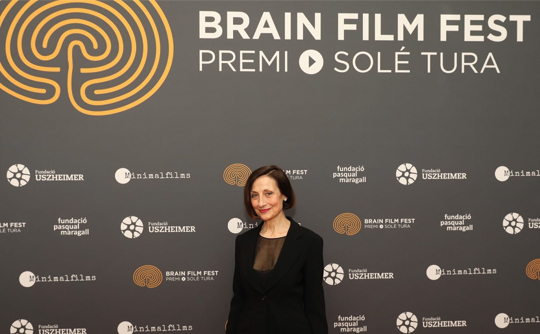
The Brain Film Fest, the film festival about the brain, celebrated its fifth edition, from March 17 to 20 at the Barcelona Contemporary Culture Center (CCCB). In 2022, the festival recognised the career of actress Carme Elias with the Brain Film Fest Special Award, in an event in which the actress announced that she had recently been diagnosed with Alzheimer's.
In the 5th edition, 37 informative activities were organised as part of the festival, 2,600 people were registered in the various sessions and 10,700 views were reached on Filmin and YouTube.

World Alzheimer's Day is celebrated every September 21, a day to raise awareness about the disease in which the Pasqual Maragall Foundation claims its mission and vision. The Pasqual Maragall Foundation has created the label #Undiaperoblidar (A day to forget), to highlight that in order to erase September 21 from the calendar, an awareness of the importance of investing in research is needed.
In addition, as part of Alzheimer's month, in September, the Foundation presented the Pasqual Maragall Researchers Program (PMRP), a research grant program with the aim of promoting translational research projects focused on Alzheimer's or other age-related neurodegenerative diseases.
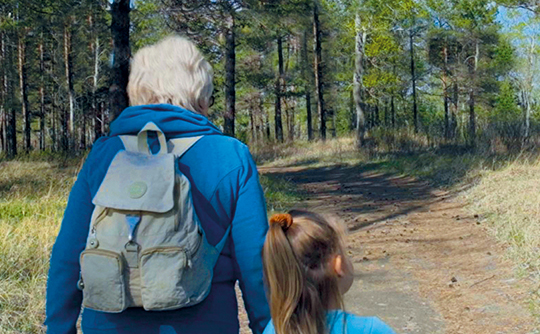
Twelve Spanish entities and organisations that work in the field of Alzheimer's and the elderly have joined the manifesto Commitment to a future without Alzheimer's so that the fight against this disease is a priority in public policies and the necessary efforts are made to have the tools to prevent and cure this pathology.
“Recent experience has shown us that scientific knowledge is essential to find solutions, but dementias have been and are still diseases forgotten in the budgets intended to promote research,“ the document states.
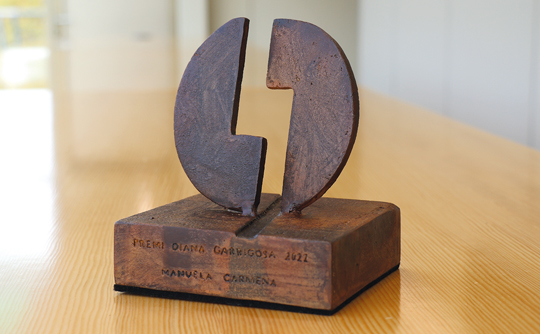
As part of the V Annual Meeting of Members and Volunteers, which took place in November, the Diana Garrigosa awards were presented for the first time to two life trajectories: Manuela Carmena, emeritus magistrate and former mayor of Madrid, and Fernando Ónega , journalist and creator of the medium 65ymás.
The Pasqual Maragall Foundation has created the awards to give visibility to the legacy of Diana Garrigosa (1944-2020) and in memory of her figure. The awards will be presented annually to people over 65 years of age, with an outstanding personal and professional career and who, in addition, are models of veterans who are active and committed to the defense of social values and rights.

The Pasqual Maragall Foundation launched the Alzheimer's Dictionary in June 2022 to explain key concepts related to the disease, with the aim of making key definitions and character concepts available to the population in an understandable way technical and scientific related to the disease.
The Alzheimer's Dictionary is made up of a series of short videos, between 30 seconds and one minute, that are published monthly on the different channels of the Pasqual Maragall Foundation. In these pieces, an expert voice from the Foundation explains in an easy way and with a close and simple vocabulary, common concepts of the disease such as dementia, resilience, beta-amyloid protein and tau, cognitive stimulation or caregiver syndrome.
 Group programs
Group programs 22
New
groups
209
Participants
At the Foundation, we support families living with Alzheimer's through group training programmes and support for caregivers of family members with the disease.
The therapeutic group program organized 10 new groups in which 100 non-professional caregivers of people with Alzheimer's participated. The program received the grant awarded by the Department of Social Rights (in charge of the allocation of 0.7% of personal income tax) of the Generalitat de Catalunya and the funding of Barcelona City Council, FIATC, Agbar and Santa Lucía Seguros.
The online support programme “Aprende a cuidar y a cuidarte” promoted 12 groups, involving 120 people. The programme received a grant from the Department of Health of the Generalitat of Catalonia and also the support of Barcelona City Council, Santa Lucía Seguros, Agbar and FIATC.

In 2022, the social base of the Pasqual Maragall Foundation did not stop growing and closed the year with more than 61,000 members, who are essential to advancing the project. In addition, it also received the support of companies and collaborators who promoted solidarity initiatives to continue research into Alzheimer’s prevention.
 Collaborators
CollaboratorsStrategic collaborators
Our sincere thanks to the network of partners and donors, and to the entities, companies and professionals that have supported our research through their contributions and collaborations. Our recognition also to all the volunteers who dedicate their time to us and help us in the organization of actions and events.
 Partners
Partners61.044
Partners
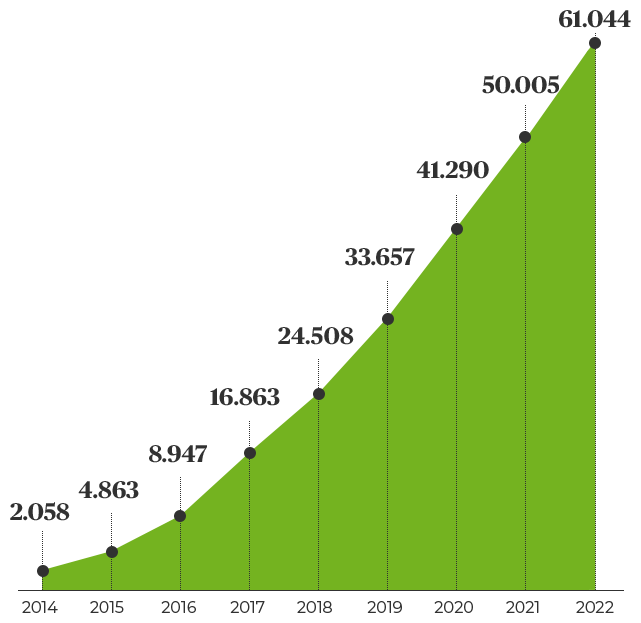
Solidarity has not stopped growing during 2022 and this is demonstrated by our figures. More than 11.000 people joined our commitment to achieve a future without Alzheimer's, which has allowed us to grow our social base up to 61,044 partners, which is what gives us the strength and support necessary to achieve our goal.
Our partners, who with their regular contributions help to finance research and social projects, providing them with stability and direction. During this year, donations also increased by injecting more than €375,000 into the Foundation's project.
In 2022, a total of 241 businesses and 209 pharmacies collaborated with the Pasqual Maragall Foundation so that in the future we can all remember. Bakeries, hairdressers, pharmacies and bars have supported our work in research for the prevention and early detection of Alzheimer's, and have thus become unforgettable shops and pharmacies.

“The more of us there are, the more we can speed up research and go faster to find a treatment against Alzheimer's”, Anna i Núria Domènech. Their pharmacy is already unforgettable..

“It is estimated that we remember 35% of what we smell. Compared to 5% of the things we see, we can see the power that aromas have to awaken memories”, Irene Iborra. Her ice cream shop is an unforgettable trade.
These are all the unforgettable shops that have collaborated with us this 2022
During 2022, more than 250 solidarity celebrations were organised in favor of our social and scientific project. Through the unforgettable details for celebrations they managed to raise €79,100.
GràciesThanks to the 521 solidarity initiatives grouped within the project “People and unforgettable ideas for a future without Alzheimer’s”, we have been able to raise a total of €197,266 for the social and scientific project that we carry out at the Foundation and the Barcelonaβeta Brain Research Center, based on the early detection and prevention of Alzheimer’s.
The Mestre Torres Association was born as a direct result of Alzheimer's disease affecting the Torres Fabra family. From the very beginning, they wanted to work with an organisation that devotes all its efforts to raising awareness in society about the origin of the disease, as well as researching its early detection. For this reason, they organised a charity football tournament that managed to raise €3,500.
Last June, María Díaz organised a gala to fight Alzheimer's. 'Last year my mother, the love of my life, was diagnosed with Alzheimer's. When I saw the work that the Pasqual Maragall Foundation was doing to prevent and detect the disease, I didn't think twice. I encourage everyone to organize a charity event. Helping makes you feel fulfilled and you realise that if we can lend a helping hand to others it is because we are lucky; it's very rewarding.
In 2022, 235 people were interested in bequeathing to the next generations a future without Alzheimer's, in which no family has to suffer the consequences of this disease. Thanks to this form of collaboration, the Pasqual Maragall Foundation has received more than €144,000 in 2022.
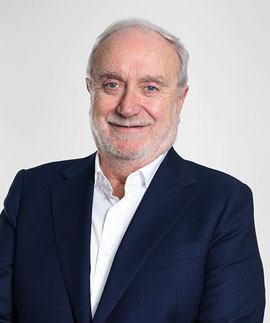
In order to be able to offer the best service to all those interested in making a charitable bequest, from the Pasqual Maragall Foundation we have the professional support of Del Romero Advocats.
“Making a will is a simple, economical and very convenient procedure to avoid problems for our heirs. A well-drafted will guarantees that the final will of the person signing it will be the rule that governs the succession and will greatly facilitate its execution. If there is no will, the distribution of assets can take longer and be much more expensive, and it will be the law that decides how and to whom our assets will be distributed”, remarks José María del Romero, managing partner of Del Romero Advocats.